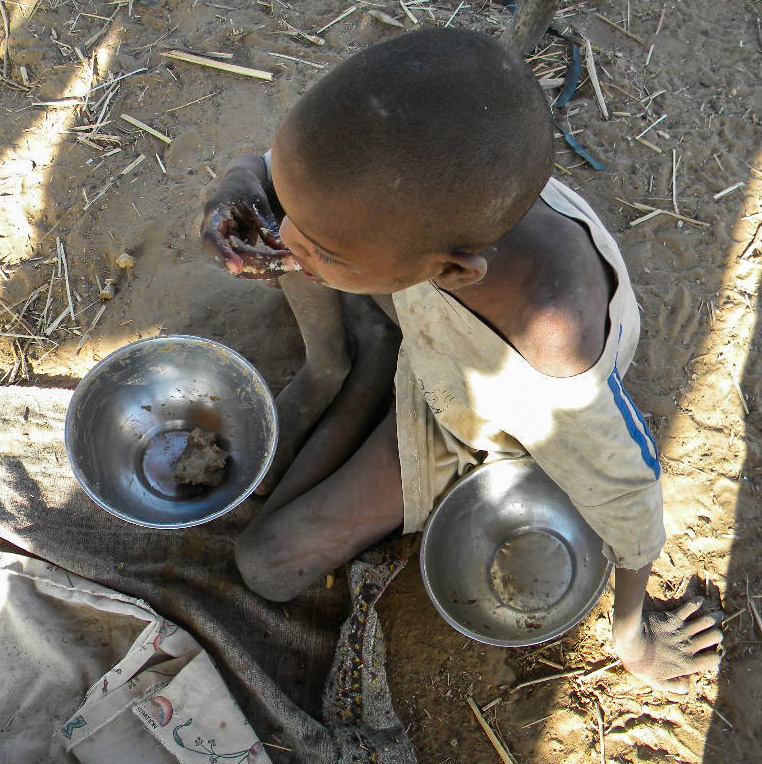
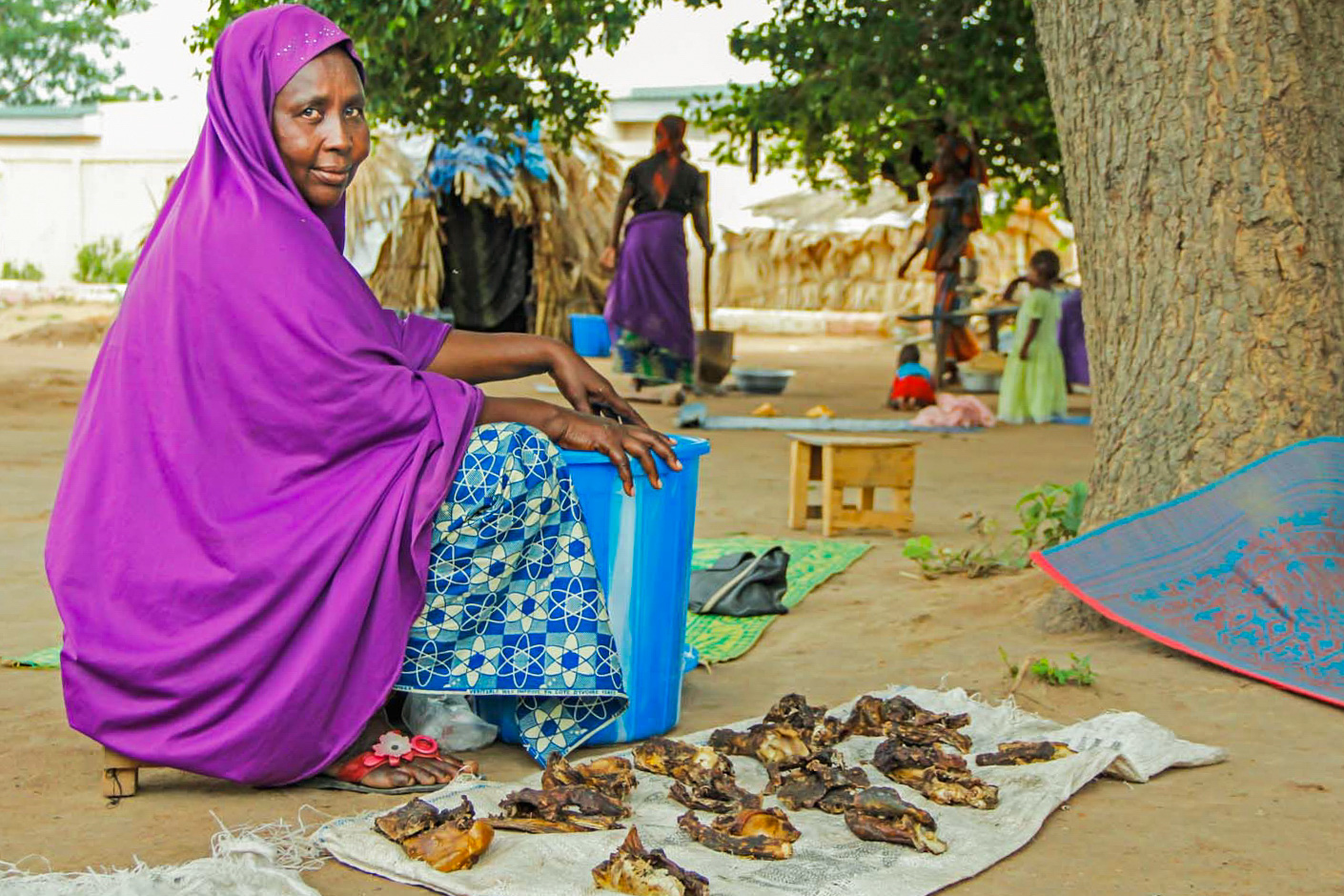
Thousands of people live in squalor in refugee camps set up in Chad. Women dry out animals’ ear, bone and skin that were disposed of and try to make meal out of them.
It was the first day of Ramadan when we traveled from capital Encemine to the country’s southern border. We have had a long journey and were exhausted before we reached the refugee camps. Fasting and the heat which we were not used to were making it difficult. However the horror of the situations and what we have witnessed did not let us stop.
Millions of people had to flee their homes after the incidents that happened in the Republic of Central Africa in 2013. Women and children who couldn’t flee the atrocities by Christian gangs were slaughtered with machetes and tortured to death. Those who managed to run away came and found shelter in the camps in Chad border.
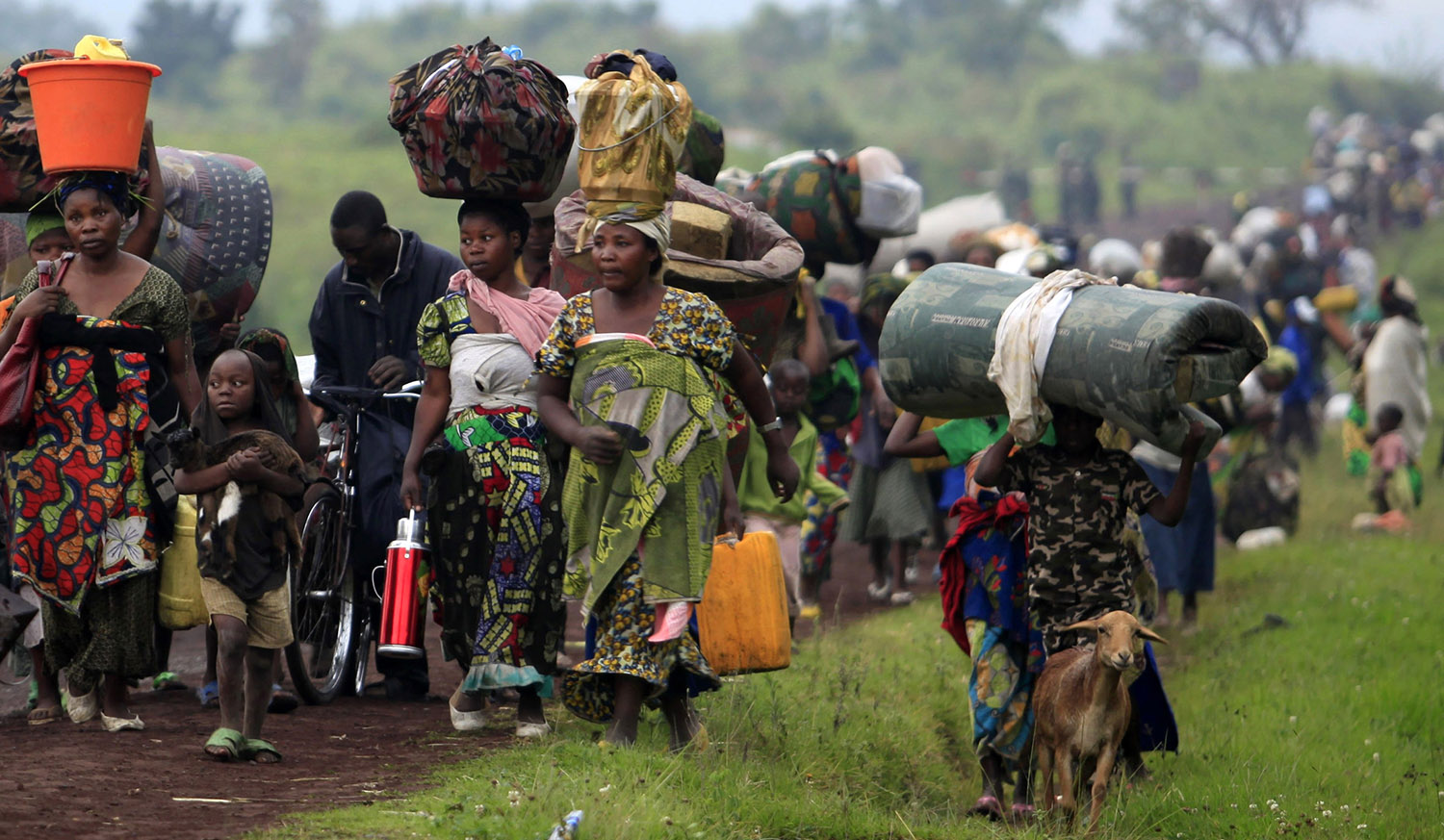
Millions of people in the Republic of Central Africa had to flee their homes due to the incidents in 2013.
It was the early hours of the morning when we arrived at our first stop Doba refugee camp. Camp was set up in the garden of a vast building. Children were running around and playing around the huts made of bushes and adults were waiting in the queue to fill in their water containers from the foundation. While some were living in the tents others had to make their own shelters. Some brushwood, rags, piece of linoleum recycled from street, and pieces of branches that will keep the hut stand make up the material of the hut. They fled before they had the chance to pick up proper clothes. Some had to walk for days to reach the border, while others were ambushed and killed on the way. What happened was known to the world. These happened before the eyes of the international community. Yet nobody ran over to their rescue. The history wrote down the atrocities committed against Muslims in the Republic of Central Africa by Christian groups.
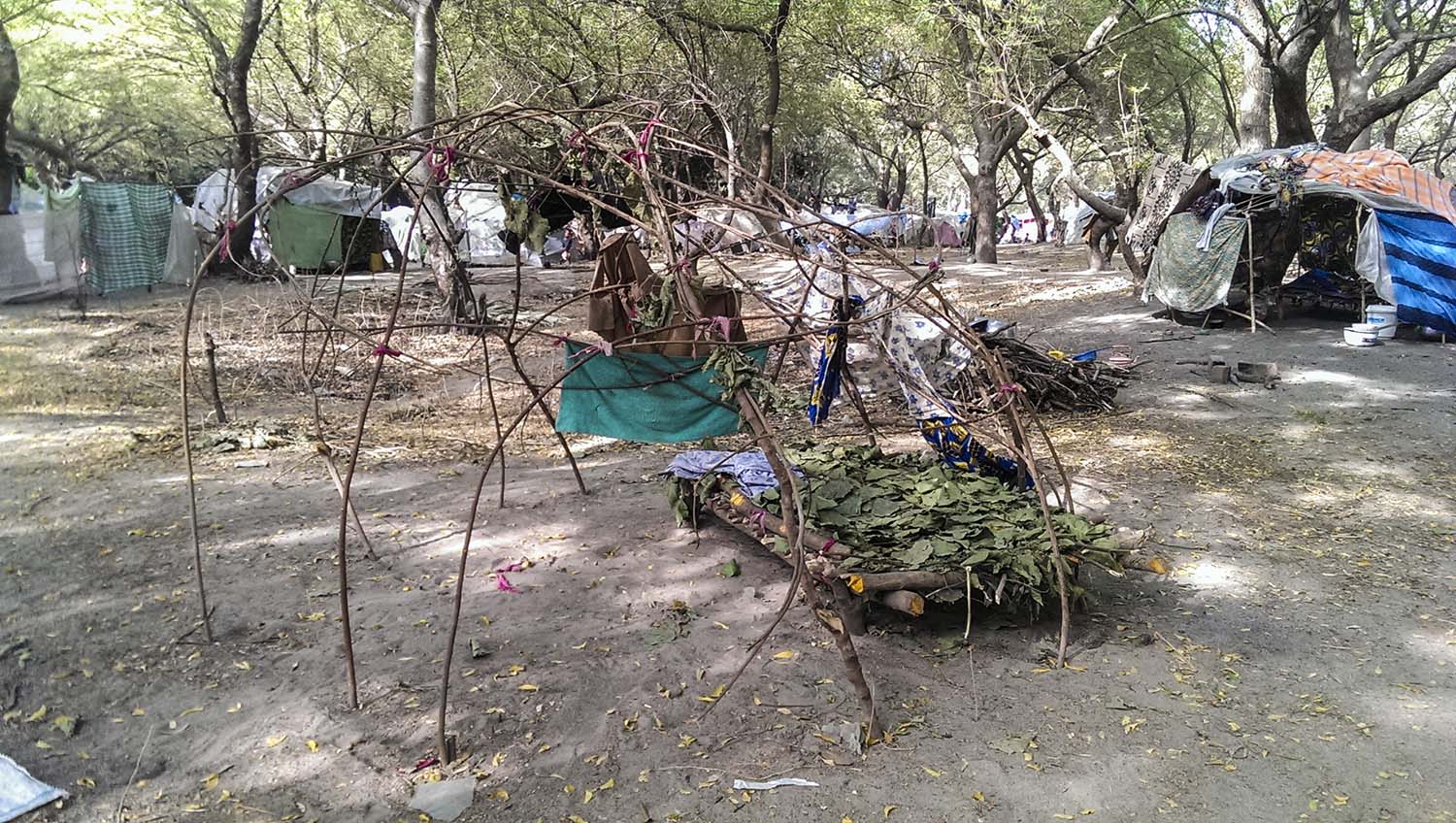
Some brushwood, rags, linoleum recycled from street and a few branches that would support the hut were all the materials which made up the shelter.
I got off the cat and started to walk deep into the camp. I saw women, who started their day early, were pounding millet in pestles. There was open fire in front of some houses and children were circled around it eagerly waiting for the food to cook. They had nothing to eat except millet. As I was walking under curious glances I came across something strange. What I saw as I looked closely would demonstrate the destitution of these people. A woman had laid out some pieces on a sack to dry out under the sun. But these were not pieces of meat. They were pieces of skin, bone, ear and cartilage of livestock. The ingredients prepared for the break-fast in the evening were waiting for the water to boil. It was the first day of Ramadan.
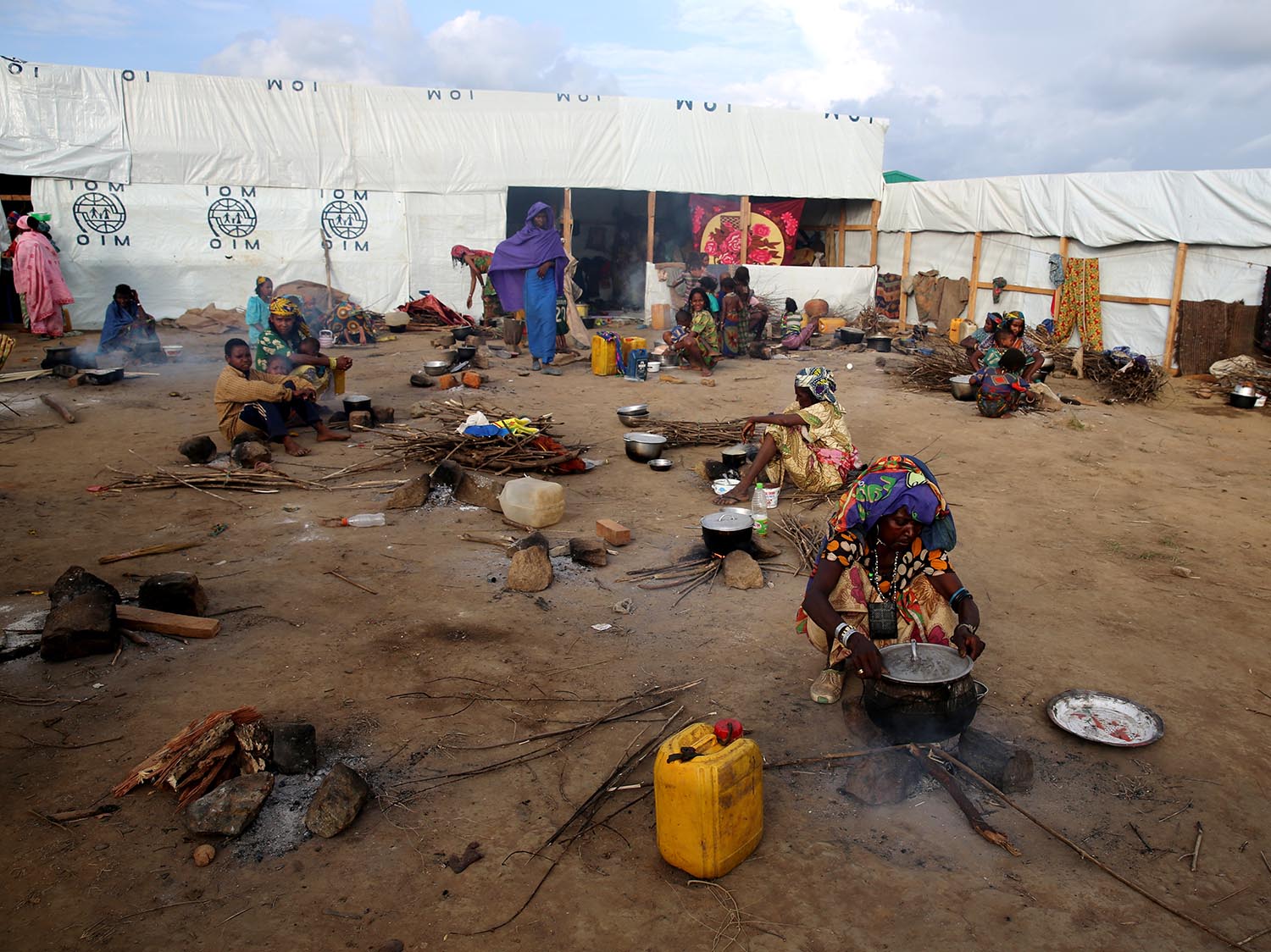
There was open fire in front of some houses and children were circled around it waiting for the food to cook.
They killed her dad on his way to Friday prayers, and her mum before her eyes...
I met a girl when I was walking around in the camp that day. Her name is Mabruka. She is 13 years old. She boils eggs every day and places them on a tray then strolls down the camp to sell them. I follow her to see how she works. She walks between the tents quietly. If someone asks for eggs she peels down the shell and season it with salt before handing it out to the customer. She had candies placed in tiny plastic bag on display on her tray. Why you are selling them Mabruka, I ask. She wants to contribute to the house where she lives, she says. The place that she refers to as the house she lives in is no more than a plastic tent. She is staying there with her paternal aunt. Mabruka is not the only child who made it to the camp without her parents. Hundreds of more children had their both parents killed on the road. Despite living in such hard conditions she does not want to be a burden to her aunt, to the place she lives in. IHH teams who visited the camp in previous months left a small sum to Mabruka who expressed her desire to do business. So this is how she started business. She bought more items with the money she earned by selling stuff. She gets food supplies for home with the money she makes. Because, she says, they give away only one food item here with which it is not possible to cook food. She talks more as I pose more questions. They had a good life in the Republic of Central Africa. While her brothers helped her dad to take care of the livestock Mabruka helped her mum who ran a restaurant. However, one day it all turned upside down. Christian Balaka gang started killing Muslims. They were not able to leave the house for days. On a Friday her dad wanted to go to Friday prayers. He went and never came back. “We were imprisoned in our home for days. We couldn’t step out out of fear. However homes were no longer safe as they breaking into the houses and killing people” she says.
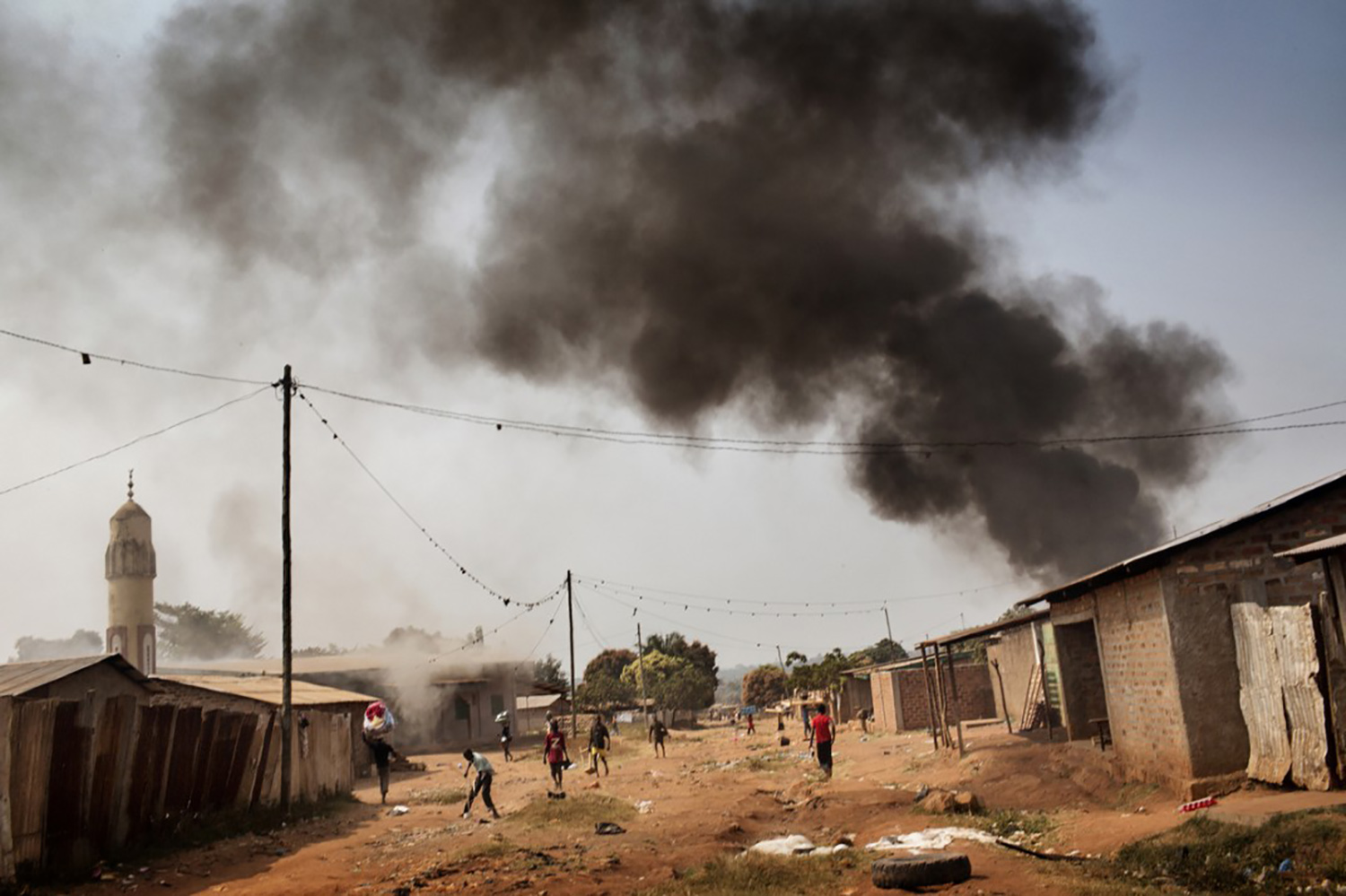
Thousands of Muslims were killed during the atrocities committed by Christian Balaka gangs.
I could not listen to the rest of the story from Mabruka as she was in tears when we started to tell how she went out with her mum in the middle of the night to run away. I changed the subject not to torment her more with these tragic memories and asked her what she misses most. She tried to smile despite her tears. “My dresses” she replied. “I had pretty dresses, I missed them.” Like everyone else Mabruka’s only clothes was the one she had on when she was running away. I heard what happened to Mabruka from others. When the gangs neared their house and started breaking into other houses on the same street they realized and tried to flee with her mum and many other people toward Chad border. However that they would be inevitably killed if they stayed home. They made a plan their group was attacked by Balaka gangs who laid ambush on their route. Her mum along with many other people was killed before her eyes. She managed to run away. Later she fled with her aunt and aunt’s husband. After walking for days they managed to reach the border. Chad soldiers placed them in a camp. After getting used to the camp she remembered the skills she acquired while helping her mum at her restaurant. That is how she decided to tell boiled eggs. We do not chance the bait and make a small contribution to Mabruka’s little business before we leave the camp. As our car leaves the camp young children chase the car with screams. I turn around and look at the camp for the last time. Mabruka waves at us.
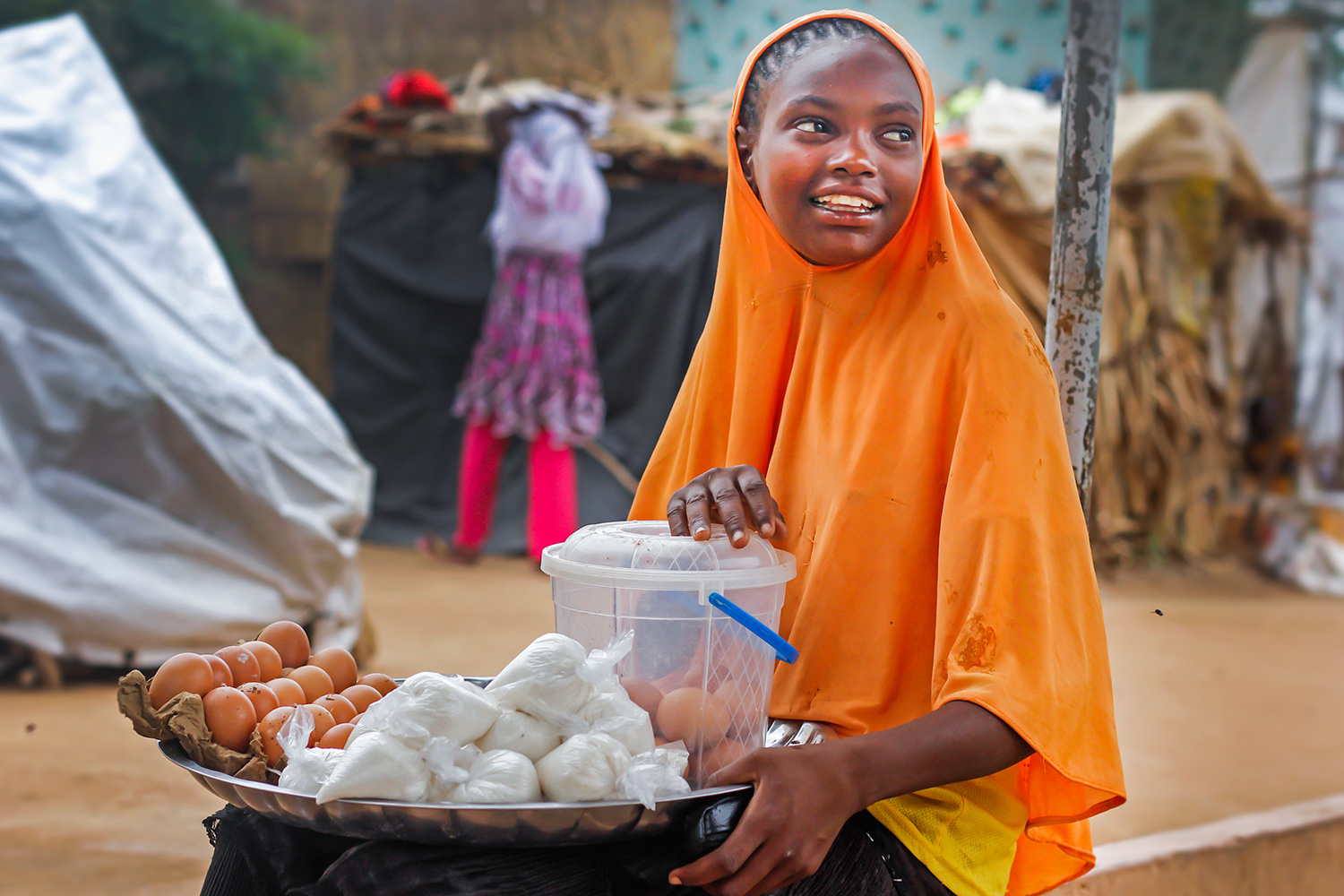
Every morning Mabruka places the eggs she boiled on a tray and strolls down the camp to sell them.
After leaving Doba camp we visited another camp. It was set up on a vast area and one of the most crowded camps in the region. I looked around after I climbed atop a truck. People going from place to place, dozens of motorbikes and bicycles were whizzing between the tents. It was a hectic place. From the way people moved in a habitual way one could feel that it was an old camp. 12.000 refugees are living here, an officer informs us. In the camp where most residents are woman and children, there are 194 children who have no parents. Reportedly some of them arrived at the camps with their relatives. Parents of some were slaughtered before they could reach the camp. And for others, no one knew how they managed to make it here. It started to rain when food aid trucks started to leave their content in the storehouses. People took shelter under the trees. When our work in the camp was over the sun was about to set. So another day was about to be over. It hurts us that there are so many destitute people in the other end of the world. We could turn a blind eye to this and return to our phony agendas and shallow discussions. Then we could be happier perhaps. But now we got to know them, this knowledge would make us responsible in terms of humanity and Islam.
DONATE FOR CENTRAL AFRİCAN REPUBLİC
